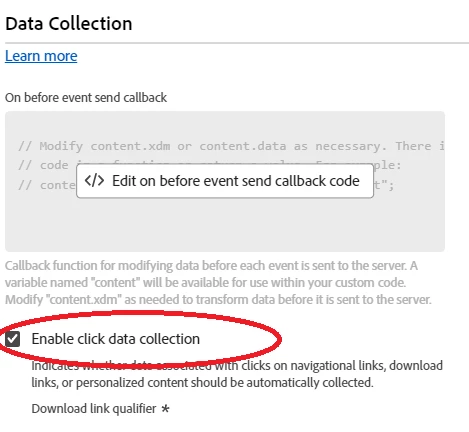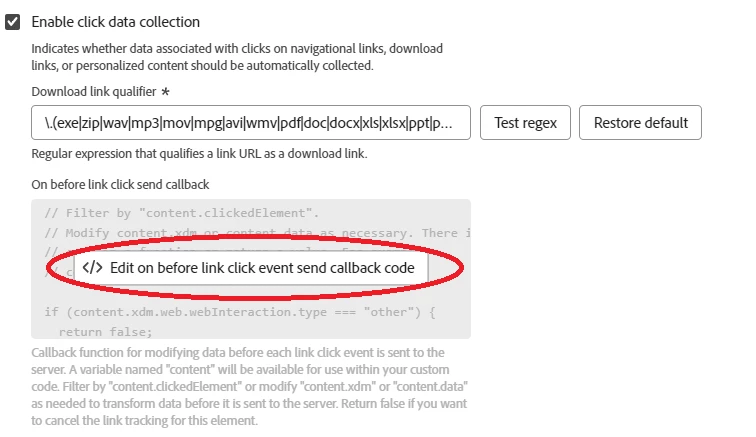Within the Experience Platform Web SDK extension there is an option to turn on automating link click tracking...

When this is selected, the default behaviour is to collect literally every single link click (not just exit links and downloads)
However, there is a way to make it exit link and download specific. You need to add a code snippet at top of the "On before link click send" callback (this is a bit like the equivalent of putting something in doPlugins in the old appMeasurement.js)

The code snippet is:
if (content.xdm.web.webInteraction.type === "other") {
return false;
}
What this does is it detects when it is not exit or download (i.e. it is "other") and returns "false", which disables the web SDK from sending the data.
NOTE: this only disables the automatically generated clicks classified as "other"; fortunately it does not disable any manually generated ones that you may have created using the send event that also pass the value "other" in the same xdm property!🙂
Although it is not very clear, the help article that specifies this is here:
Track Links Using the Adobe Experience Platform Web SDK | Adobe Experience Platform
(Help article states: "Adobe recommends returning false for the link clicks that should not be tracked. Any other response will make Web SDK send the data to the Edge Network." - you have to work out this translates to the above)
Bonus information - Exit Link Tracking:
Similarly to the old analytics extension, Web SDK will automatically treat any link that goes outside of the current domain as an exit link. The old Analytics Extension used to let you black list additional domains that you didn't want to treat as exit links. This functionality does not exist in the same way in Web SDK. If you want to prevent additional domains being treated as exit links you now need to do this in code, again returning "false" in the "On before link click send" callback.

